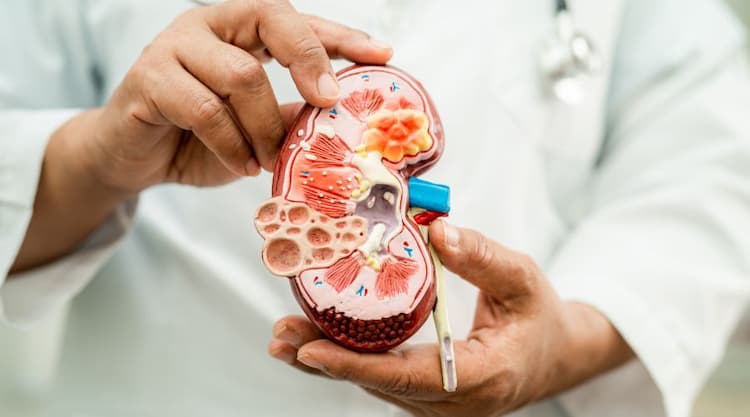Important Blood Tests to Detect Stomach Infection

Medically Reviewed By
Dr Sohini Sengupta
Written By Kirti Saxena
on Feb 3, 2024
Last Edit Made By Kirti Saxena
on Mar 18, 2024

Almost everyone experiences stomach aches, upset stomach, pain, or other gastric problems, but they are not usually serious. But if the stomach pain is not getting normal, it could be a pesky stomach infection causing discomfort. The common cause might be a bacterial infection, but the good news is it can be simply identified with blood tests. Stomach pain, nausea, vomiting, and diarrhea are all signs of infection. However, these symptoms can also point to other issues like food poisoning, anxiety, or even dietary changes. Increased white blood cell counts might indicate inflammation related to various infections, while anemia (low iron levels) can sometimes be linked to chronic digestive issues. So, if the pain and others are not getting normal in a few days after taking medications, consult your doctor. Based on your symptoms and medical history, they’ll decide if a blood test is the next step in cracking the case of your grumpy gut. The early diagnosis can help you get the right treatment and feel better fast!
Common causes of Stomach infection
You will most likely catch the infection when you eat or drink contaminated food or water. However, there are many possible causes of stomach infections, and they are divided into three main groups:
- Viral infections- These are the most common cause of stomach infections, often referred to as the “stomach flu.” Rotavirus and norovirus cause inflammation and irritation in the intestines. These viruses spread through contaminated food or water, poor hygiene, and close contact with infected individuals.
- Bacterial Infection- Bacterial infections in the stomach can be caused by several different types of bacteria, including E. coli, salmonella, and Campylobacter. These sneaky microbes often hitch a ride on undercooked meat, poultry, eggs, unpasteurized dairy products, and contaminated fruits and vegetables. Poor hygiene practices also play a role.
- Parasite- While less common, parasitic infections like giardia and cryptosporidium can also wreak havoc on your stomach. These tiny organisms are found in contaminated water sources or can be transmitted through contact with infected animals or their stools.
Other factors that may cause stomach infections-
- Overuse of certain medications- Excessive use of antibiotics, pain relievers, and acid reducers can disrupt the natural balance of gut bacteria and may cause stomach infections.
- Other Health issues- Some chronic diseases like Crohn’s disease and celiac disease can weaken the digestive system and make it more prone to infection.
- Food allergies and intolerances- People with food allergies may feel uncomfortable irritation in the stomach lining that mimics symptoms of stomach infection.
- Poor hygiene- Lack of cleanliness, eating unhygienic street food, and consuming contaminated water cause stomach infections.
- Weakened immune system- People with weak immune systems are more susceptible to catching stomach infections.
Common Symptoms of Stomach Infection
As mentioned above, stomach infections are caused by various viruses, bacteria, parasites, and even toxins. While the symptoms are quite similar in people. Here are some of the most common symptoms of a stomach infection:
- Nausea and vomiting
- Diarrhea
- Abdominal cramps and pain
- Fever
- Dehydration
Other less common symptoms of a stomach infection are-
- Loss of appetite
- Headache
- Muscle aches
- Fatigue
- Blood in the stool
Essential blood tests for Stomach infection
By understanding these essential blood tests for stomach infections, you can become a more informed partner in your healthcare journey. It’s always best to discuss your concerns with your doctor for accurate diagnosis and appropriate treatment.
- Helicobacter pylori (H. pylori) antibody test detects the antibodies your body produces in response to H. pylori, a bacteria linked to ulcers and stomach cancer.
- Complete Blood Count (CBC)– Checks for overall blood cell health, including white blood cells, red blood cells, and platelets. High WBCs indicate inflammation or infection that may be bacterial or viral.
- C-reactive protein (CRP) test– High CRP levels indicate infection, not specific to the stomach. The CRP test measures CRP, a protein the liver releases during inflammation.
- Viral hepatitis tests- Hepatitis A, B, and C can cause stomach symptoms. The Hepatitis A IgG Antibody Test, Hepatitis B Surface Antibodies (HBsAb) Test, and Hepatitis C antibody (HCV) Test check for antibodies or antigens of these viruses.
- Electrolyte test– An imbalance in the electrolyte panel may cause severe diarrhea, vomiting, and muscle cramps. The electrolyte test measures key electrolytes like sodium, potassium, and chloride. This test assesses and helps correct such imbalances.
- Gastrin test– High levels of the hormone Gastrin stimulate stomach acid production. The test measures the stomach infection symptoms.
- Immunoglobulin G (IgG) test checks for IgG antibodies, indicating past exposure to various infections that might contribute to current symptoms. The test is not specific to stomach infections but helpful in broader diagnosis.
- Kidney Function Tests (KFT)– The test helps measure kidney function through creatinine and other markers. Some stomach infections can affect kidney function, so this test ensures proper evaluation and avoids potential complications.
- Blood Culture & Sensitivity, Bactec Test– This test detects specific bacteria causing the stomach infection by culturing a blood sample.
- Pancreatitis Amylase Test and Lipase Test- The test measures the pancreatic enzymes amylase and lipase; high levels may indicate pancreatitis, which may cause symptoms of stomach infection.
- Entamoeba Histolytica Antigen Detection Test– The test detects antigens of Entamoeba histolytica, a parasite causing amoebic dysentery, a severe form of diarrhea. This test specifically identifies this parasitic infection, which requires targeted treatment.
- Liver Function Tests (LFT)– This test assesses liver function through enzymes like ALT and AST. Some stomach infections can affect the liver, so this test ensures liver health is monitored and potential complications addressed.
Urine and stool culture tests for Stomach Infection
Urine and stool culture tests are important to identify the cause of stomach infections. Your doctor may order the below test to identify the causes of the disease-
- Stool Occult Blood Test
- Stool Culture Test
- Urine Routine & Microscopic Examination Test
- Giardia Lamblia Antigen Detection, Stool (Rapid Card) Test
Tips to Prevent Stomach Infection
Keeping your gut happy and healthy is key to avoiding the unpleasantness of stomach infections. Following the below tips, you reduce your risk of getting a stomach infection.
- Wash your hands frequently with soap and water, especially before eating and after using the bathroom.
- Cook food to the proper temperature.
- Avoid eating raw or undercooked meat and seafood.
- Drink plenty of fluids, especially if you are experiencing diarrhea or vomiting.
- Avoid contact with people who are sick.
- Wash the fruits and vegetables thoroughly under running water.
- Keep yourself hydrated, as water helps flush out toxins and keep your digestive system running smoothly.
- Avoid consuming sugary drinks; these can irritate your gut and worsen diarrhea.
- Probiotics, the “good bacteria” in your gut, can help keep your digestive system in balance. So, you can add yogurt, kefir, or fermented foods into your diet.
Why do Blood Tests Matter for Stomach Health?
Maintaining gut health with overall health is crucial to enjoy your life. An upset stomach can disrupt your daily life, leaving you feeling drained and uncomfortable. The occasional stomach might be nothing to worry about, but persistent digestive issues could signal a severe problem. This is where blood tests come in importance. Consult your doctor and take a blood test for stomach infection to find the underlying cause of your discomfort. Whether it’s a bacterial infection, viral intruder, or even an autoimmune condition, blood tests can help identify the exact cause of your stomach woes. However, early diagnosis is crucial for effective treatment and preventing complications. Focusing on preventative healthcare and prioritizing gut health is more important than ever because knowing the cause means quicker access to the right treatment, leading to faster symptom resolution and a happier you.



